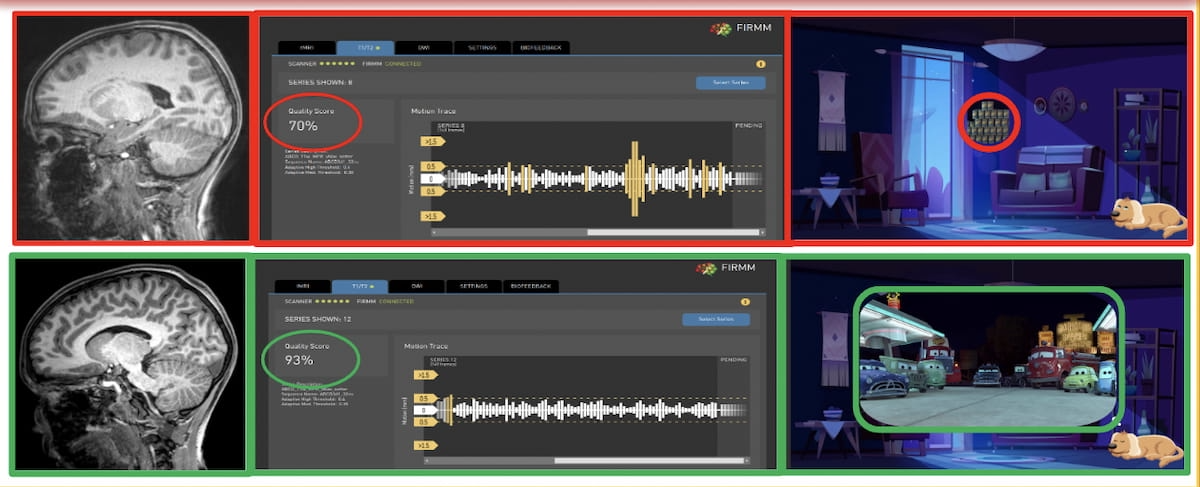Could Gamification Enhance Brain MRI Acquisition?
FIRMM-pix, a brain magnetic resonance imaging (MRI) software module recently launched at the International Society for Magnetic Resonance in Medicine (ISMRM) conference, reportedly employs visual biofeedback and gamification that coaches patients to stay still during brain MRI exams.
Is gamification the answer to reducing motion distortion during brain magnetic resonance imaging (MRI) exams?
Turing Medical Technologies has launched FIRMM-pix, a brain MRI software module, which utilizes gamification and visual biofeedback to ease patient anxiety and reduce head movement during exams.
FIRMM-pix, which was recently showcased at the International Society for Magnetic Resonance in Medicine (ISMRM) conference, reportedly utilizes licensed movie content and a comforting guide dog in one game called Puppy Dreams to help calm patients and inform them about movements during brain MRI exams.
“Motion-induced image degradation remains a significant weakness of brain MRI, making it difficult to acquire a scan quickly. With a solution like FIRMMpix, we have the potential to conduct high-fidelity scans without compromising important data and without the need for anesthesia. Moreover, its patient-centric design fosters active participation, making the scanning process more comfortable and inclusive for patients,” noted Lawrence Tanenbaum, M.D., vice president, chief technology officer and director of advanced imaging at RadNet.
Turing Medical Technologies has launched FIRMM-pix, a brain MRI software module, which utilizes gamification and visual biofeedback to ease patient anxiety and reduce head movement during exams.

Turing Medical Technologies said FIRMM-pix is a complement to the existing FIRMM brain MRI software, which helps monitor head motion during exams and provides real-time feedback to technologists. Use of the FIRMM software can lead to a 25 percent reduction of unnecessary repeat brain MRI scans and greater than $115,000 in annual cost-savings per MRI scanner, according to the company.
(Editor’s note: For related content, see “Can Abbreviated MRI Have an Impact in Neuroimaging?” and “New MRI Study Examines Impact of Disparities with Childhood Adversity Exposure on Brain Development.”)
Newsletter
Stay at the forefront of radiology with the Diagnostic Imaging newsletter, delivering the latest news, clinical insights, and imaging advancements for today’s radiologists.
FDA Expands Approval of MRI-Guided Ultrasound Treatment for Patients with Parkinson’s Disease
July 9th 2025For patients with advanced Parkinson’s disease, the expanded FDA approval of the Exablate Neuro platform allows for the use of MRI-guided focused ultrasound in performing staged bilateral pallidothalamic tractotomy.
FDA Clears Virtually Helium-Free 1.5T MRI System from Siemens Healthineers
June 26th 2025Offering a cost- and resource-saving DryCool magnet technology, the Magnetom Flow.Ace MRI system reportedly requires 0.7 liters of liquid helium for cooling over the lifetime of the device in contrast to over 1,000 liters commonly utilized with conventional MRI platforms.